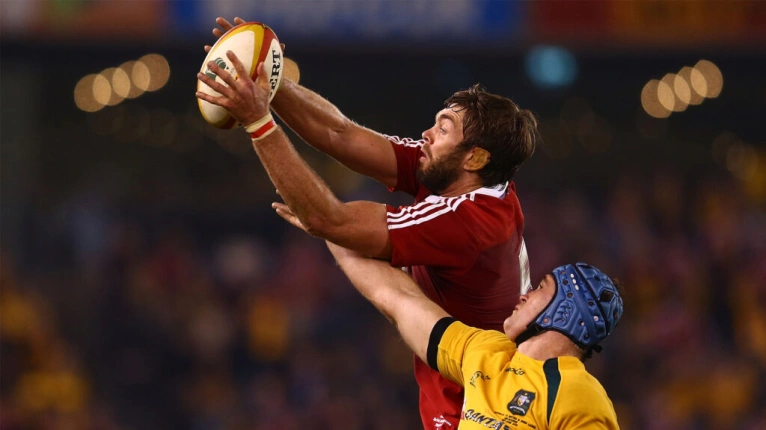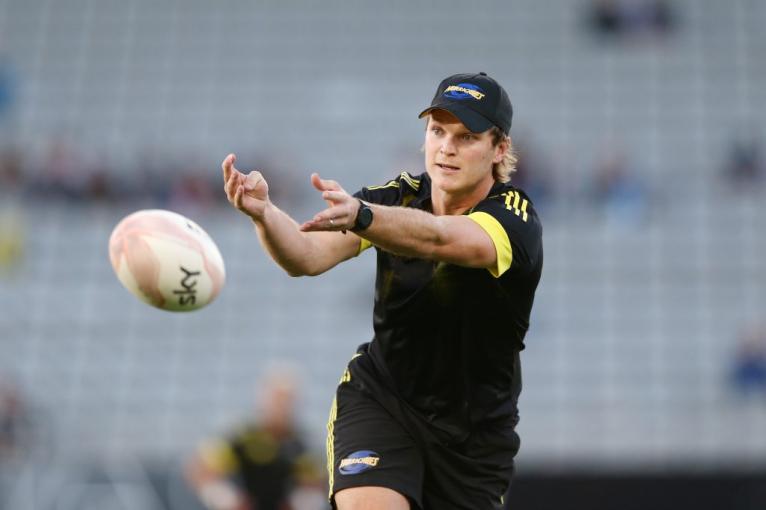It’s the time of year we either get excited about the big games our teams have coming up, or excited about how much better next season will be once our new signings have arrived. But there’s a more important factor which will determine our side’s success we aren’t talking about: the coaching teams. Both Leinster and Australia recently announced appetising hires in Tyler Bleyendaal and Geoff Parling. Both are young, Bleyendaal 33 and Parling 40, and both have been praised for their genius level rugby intellect.
Rugby has never really got to grips with evaluating coaching talent. Leo Cullen explained Leinster used stats from Bleyendaal’s time at the Hurricanes to help their recruitment. But how big an impact does an assistant coach have and can we predict how the duo might influence their respective sides?

First of all, what do assistant coaches actually do? Teams would generally have three coaches below their head honcho; attack coach, defence coach, forwards coach. Teams increasingly add coaches to cover kicking, the breakdown, contact, and skills, though these are rarely full-time roles. The impact these coaches have varies depending on the head coach they work under. Some will simply be brought in to enact the game plan the supremo has devised. That’s particularly common when the head coach spent significant time as a position coach. Other head coaches will give far more control to their position coaches and simply oversee.
Parling is likely to be given more freedom in his role. He has been the Melbourne Rebels’ forwards coach for six seasons and held the same position with Australia in 2020. His new remit is the lineout and he will be tasked with turning the Wallabies set-piece from average to a genuine weapon. The kind of thing Joe Schmidt knew was so important during his Ireland days. The Rebels lineout wasn’t on fire under Parling last year – in fact it was the lowest ranked of the Australian sides in Super Rugby Pacific. However, if you delve beyond the top-line statistics, a lot of those lineouts were lost due to a squint throw. That’s not an excuse, but it points to individual errors rather than significant structural failings. With greater talent at his disposal, Parling should be in a good position to fix the lineout and add creativity.
Schmidt will have a huge influence on the lineout from an attacking perspective and Parling will be tasked with creating a platform which feeds into what the New Zealander wants to do.
Where we should see a clear change is in the lineout groupings Australia use. At the World Cup, they deployed a four-man lineout 29% of the time, around 50% more than any other side. There has been a tendency to see more four-man lineouts as they are difficult to defend against a team quick across the ground. Parling used the four-man setup just 8% of the time and favoured five and six-man lineouts with plus ones, where a forward takes the role of the scrum-half. The modern game is leaning towards plus ones because it creates more deception and teams tend to want to maul their lineouts regardless of pitch location. Expect to see Parling incorporate some of those four-man lineouts but predominantly lean on the longer arrangements he is more familiar with.
Schmidt will have a huge influence on the lineout from an attacking perspective and Parling will be tasked with creating a platform which feeds into what the New Zealander wants to do. After all, the lineout is by some margin rugby’s greatest source of tries.

Bleyendaal is in a different position. Leinster and Ireland have become so similar in style and personnel he almost certainly won’t be able to do whatever he likes In reality, he will be influenced by the man he is replacing, Andrew Goodman, who becomes the national team’s attack coach. That doesn’t mean Bleyendaal won’t be able to have an impact.
His Hurricanes side topped the try-scoring charts and were second for points scored last season. What may be of more interest to Cullen is the array of skills on display amongst the Canes forwards. The Leinster game plan is built on intricate passing sequences where each pass is short. This was the hallmark of the Irish game during the World Cup and Six Nations when they totally outstripped their opponents in sub-5m passes. The Canes plan isn’t necessarily the same but they still require elite-level of ball skills from their forwards. Bleyendaal will be able to bring new perspectives on areas the forwards could progress. This will probably involve carrying technique and creating mismatches but could also be a greater push towards total rugby with forwards and backs switching depending on what the opposition presents.
Bleyendaal’s role will be evolution rather than revolution. Leinster are one of the best teams in the world and there’s no need for them to change tack drastically. Refinements of technique and ideas can help a team who, despite their veritable superclub status, have underperformed in pursuit of tangible rewards. Given their resources and squad, any year Leinster don’t win at least one trophy is a huge blow. The gap to rival giants such as Toulouse is narrow and it will be on Bleyendaal to try and close it, without an Antoine Dupont in his ranks.
In some ways the role of the assistant coach is thankless. If you do perform, your impact often gets lost or credited to the head coach. If your area isn’t performing in an otherwise strong game model, you look like the weak link. And if the whole team underperforms your role is under threat anyway. Sadly, that’s the way of modern coaching.

We also struggle to accurately measure what these assistants do and the value they add. If you look behind the headline stats though you can see their fingerprints. That is what Leinster and Australia have done, and sought some of that nous for themselves. Keep an eye on Parling’s lineouts and Bleyendaal’s attack – can you see their influence? If things go well, expect to see them both mentioned when the topic of national head coaches comes up again in the next few years.



Comments
Join free and tell us what you really think!
Sign up for free